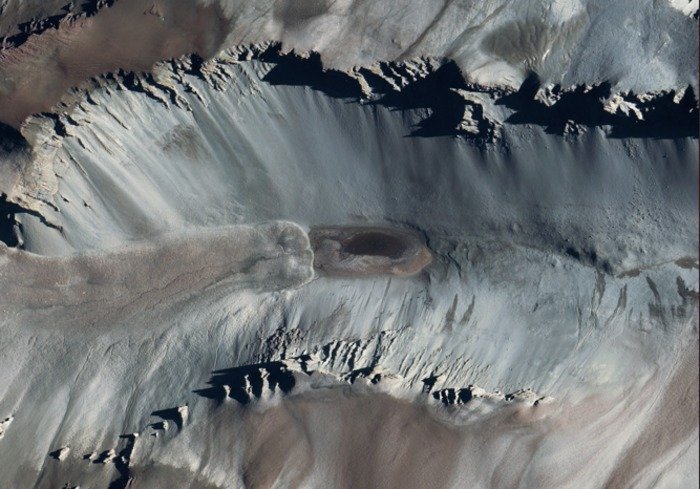PROVIDENCE, R.I., Feb. 7 (UPI) -- Earth's most unlikely body of water, in frigid Antarctica, is liquid only because its salt content -- the highest on Earth -- keeps it that way, scientists say.
Don Juan Pond, located in the freezing McMurdo Dry Valleys, one of the coldest and driest places on Earth -- and with similarities to the frozen deserts of Mars -- could have implications for understanding water flow on Mars both in the past and maybe in the present, they said.















